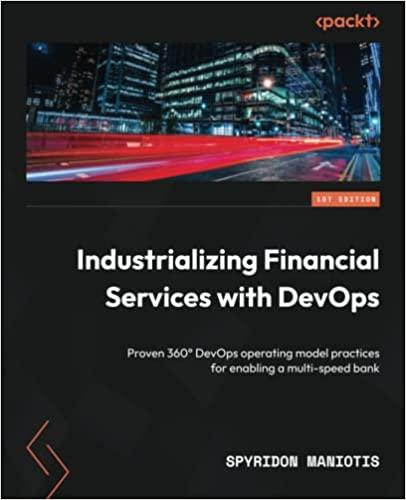Answered step by step
Verified Expert Solution
Question
1 Approved Answer
Several factors have been proposed as providing a rationale for mergers. Among the more prominent ones are ( 1 ) tax considerations, ( 2 )
Several factors have been proposed as providing a rationale for mergers. Among the more prominent ones are tax considerations, diversification, control, purchase of assets below replacement cost, and synergy. From the standpoint of society, which of these reasons are justifiable? Which are not? Why is such a question relevant to a company like ICI, which is considering a specific acquisition? Explain your answers.
Briefly describe the differences between a hostile merger and a friendly merger. Is there any reason to think that acquiring companies would, on average, pay a greater premium over target companies' preannouncement prices in hostile mergers than in friendly mergers?
Complete Ameci's cash flow statements for through Why is interest expense typically deducted in merger cash flow statements, whereas it is not normally deducted in capital budgeting cash flow analysis? Why are retained earnings deducted to obtain the free cash flows?
Conceptually, what is the appropriate discount rate to apply to the cash flows developed in Question What is the numerical value of the discount rate? How much confidence can one place in this estimate, ie is the estimated discount rate likely to be in error by a small amount, such as percentage point, or a large amount, such as or percentage points? Would an error in the discount rate have much of an effect on the maximum offer price?
What is the terminal value of Ameci's, that is what is the value of the cash flows Ameci's is expected to generate beyond What is Ameci's value to ICI at the beginning of Suppose another firm was evaluating Ameci as a potential acquisition candidate. Would they obtain the same value? Explain.
a Ameci's management has a substantial ownership interest in the company, but not enough to block a merger. If Ameci's managers want to keep the firm independent, what are some actions they could take to discourage potential suitors?
b If Ameci's managers conclude that they cannot remain independent, what are some actions they might take to help their stockholders and themselves get the maximum price for their stock?
c If Ameci's managers conclude that the maximum price others are willing to bid for the company is less than its "true value," is there any other action they might take that would benefit both outside stockholders and the managers themselves? Explain.
d Do Ameci's managers face any potential conflicts of interest agency problems in their negotiations with ICI? If so what might be done to reduce conflictofinterest problems?
Ameci has million shares of common stock outstanding. The shares are traded infrequently and in small blocks, but the last trade, of shares, was at $ per share. Based on this information, and on your answers to Questions and how much should ICI offer for Ameci, and how should it go about making the

Step by Step Solution
There are 3 Steps involved in it
Step: 1

Get Instant Access to Expert-Tailored Solutions
See step-by-step solutions with expert insights and AI powered tools for academic success
Step: 2

Step: 3

Ace Your Homework with AI
Get the answers you need in no time with our AI-driven, step-by-step assistance
Get Started


